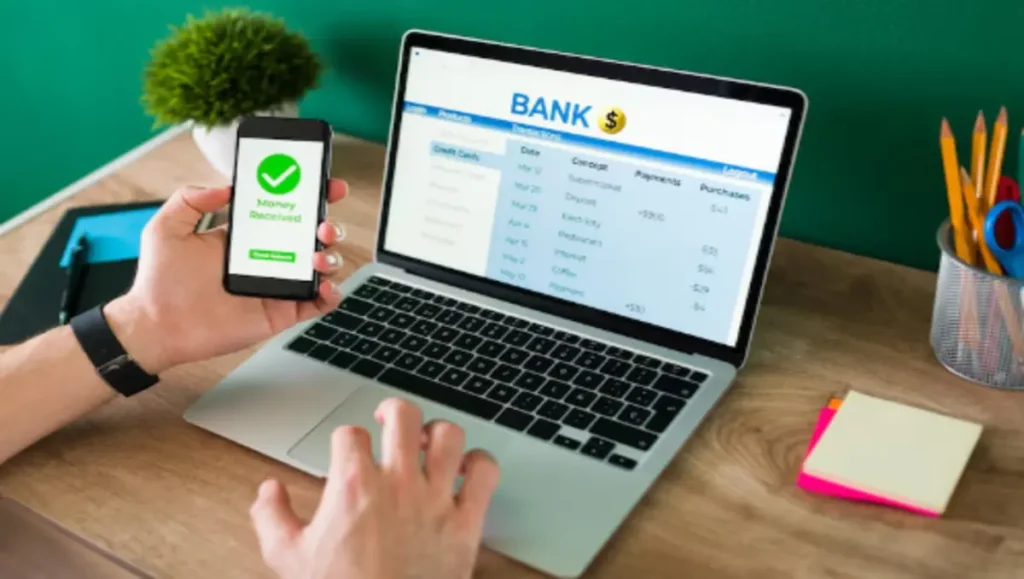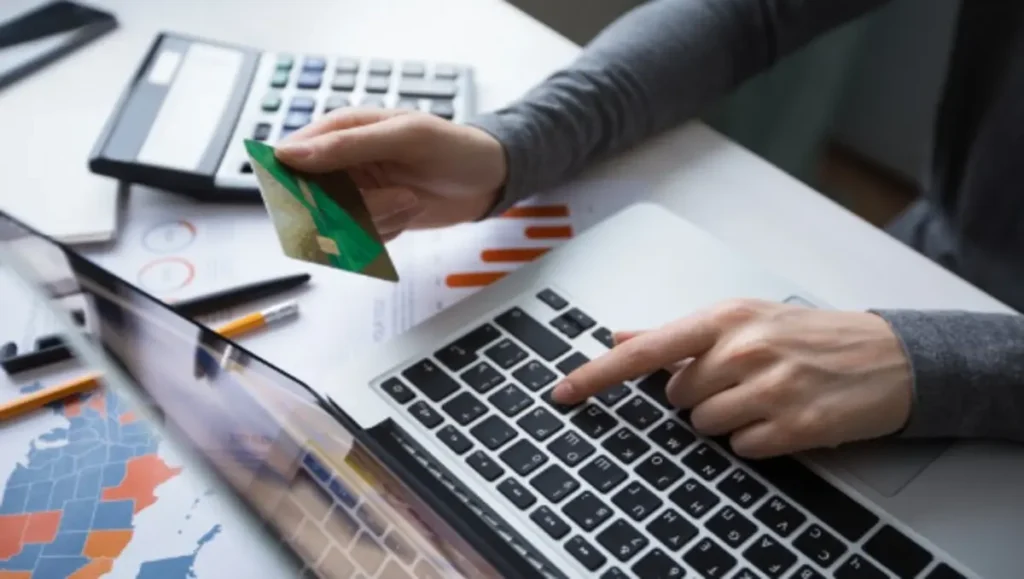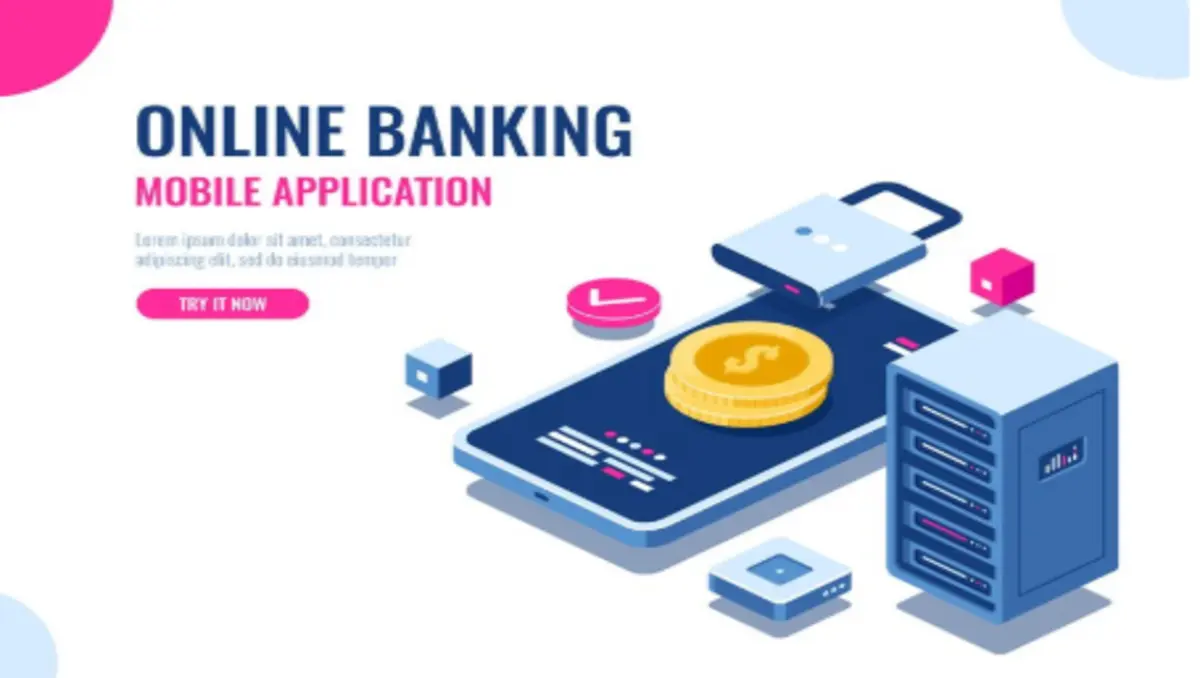In today’s fast-paced world, the way we manage our finances has drastically changed. Gone are the days when you had to stand in long lines at the bank or wait for business hours to conduct your financial transactions. Thanks to online banking, managing your money is easier, faster, and more convenient than ever. In this blog post, we’ll take a deep dive into online banking, explore how it works, its benefits, and why it has become a vital part of our daily lives.
What is Online-Banking?
Online-banking, also known as internet banking or e-banking, refers to the use of the internet to conduct financial transactions. Instead of visiting a traditional brick-and-mortar bank, customers can now use their computers or smartphones to access a wide range of banking services, from transferring money to paying bills. The best part? You can do all of this from the comfort of your home or on the go, 24/7.
How Does Online-Banking Work?
Online banking works by providing customers with access to their bank accounts through a secure online platform. Banks offer a website or a mobile app that allows users to log in with their unique credentials. Once logged in, customers can view their account balances, transfer funds, pay bills, and even apply for loans.
The platform uses encryption technology to ensure that your personal and financial information remains safe from unauthorized access. Most banks also use two-factor authentication, which adds an extra layer of security by requiring a second form of identification (such as a one-time password sent to your phone) to access your account.
Benefits of Online Banking
1. Convenience
The primary advantage of online banking is convenience. Traditional banks have set operating hours, but online banking is available 24 hours a day, seven days a week. Whether it’s early in the morning or late at night, you can access your accounts whenever you need to. This is especially helpful for people with busy schedules who may not be able to visit a bank during regular hours.
2. Time-Saving
Gone are the days of waiting in long queues at the bank. Online banking allows you to complete your transactions in just a few minutes. Whether you’re transferring money, paying bills, or checking your balance, everything can be done quickly and efficiently, saving you precious time.

3. Access to a Wide Range of Services
Online banking platforms offer a wide variety of services, all in one place. You can check your account balance, view transaction history, transfer money between accounts, apply for loans, set up automatic payments, and much more. You don’t need to visit different departments for different services – everything is available at your fingertips.
4. Lower Costs
With online banking, you can often avoid fees that are associated with traditional banking methods. For instance, many banks charge fees for paper statements or for processing certain types of transactions. Online banking eliminates these costs and offers lower or no fees for many services. This means more money stays in your pocket.
5. Enhanced Security
Online banking platforms use advanced encryption and multi-layered security measures to protect your financial data. Your bank may require a strong password, a second layer of authentication, and secure devices to access your account. This means that your funds are well-protected from fraud or unauthorized access. In addition, many banks offer fraud detection services, alerting you to any suspicious activity.
6. Financial Management Tools
Many online banking platforms come with built-in financial management tools. These tools can help you track your spending, set budgets, and even analyze your financial habits. By regularly reviewing your transactions and financial reports, you can make smarter decisions with your money and achieve your financial goals.
7. Eco-Friendly
Online banking helps reduce paper usage, contributing to a more eco-friendly lifestyle. With digital statements, receipts, and notifications, you don’t need to worry about accumulating paper clutter. Moreover, the reduction in physical trips to the bank also helps reduce your carbon footprint.
How to Get Started with Online Banking
Getting started with online banking is simple. Most banks provide easy-to-use platforms for both desktop and mobile users. Here’s a step-by-step guide on how to get started:
1. Choose the Right Bank
The first step is to choose a bank that offers online banking services. Most major banks now offer online banking, but it’s important to consider factors like user experience, fees, and services provided. You may want to compare different banks to find the one that best suits your needs.
2. Sign Up for Online Banking
Once you’ve chosen your bank, you’ll need to sign up for online banking. This may involve filling out a registration form online, providing identification details, and setting up security features like your username and password. Many banks will require you to confirm your identity through email or SMS.
3. Download the Bank’s Mobile App
Most banks offer a mobile app that you can download to your smartphone. This allows you to manage your finances on the go. Simply search for your bank in the App Store or Google Play, download the app, and log in with your credentials.
4. Start Using Online Banking
Once you’ve signed up and logged in, you can start using the online banking platform. You’ll have access to your account balances, transaction history, and all available banking services. Be sure to take a few minutes to explore the platform and familiarize yourself with the various tools and features it offers.
Common Online Banking Features
Online banking platforms come with a variety of features that can make managing your finances much easier. Some of the most common features include:
- Bill Payments: Pay your utility bills, rent, and other payments directly from your bank account.
- Fund Transfers: Transfer money to family, friends, or businesses with just a few clicks.
- Direct Deposit: Have your paycheck or government benefits directly deposited into your bank account.
- Mobile Check Deposit: Deposit checks by taking a photo of them using your bank’s mobile app.
- Budgeting and Financial Planning Tools: Track your spending and set financial goals using built-in tools.
- Alerts and Notifications: Set up alerts to receive notifications about account activity, bill due dates, and more.

Is Online Banking Safe?
One of the biggest concerns people have about online banking is security. While there is always a risk associated with online transactions, most banks take extensive measures to protect your personal and financial information.
Here are some tips to ensure your online banking experience is safe:
- Use Strong Passwords: Always choose a unique and complex password for your online banking account.
- Enable Two-Factor Authentication: This adds an extra layer of security by requiring a second form of identification.
- Keep Your Devices Secure: Install antivirus software and use secure networks when accessing your online banking account.
- Monitor Your Accounts Regularly: Regularly check your account statements and transactions to spot any suspicious activity.
Challenges of Online Banking
While online banking offers numerous benefits, there are some challenges to consider:
- Internet Access: To access online banking, you need a reliable internet connection. Without it, you won’t be able to perform transactions or manage your account.
- Technical Issues: Online banking platforms can sometimes experience downtime or technical glitches, which can prevent you from accessing your account.
- Security Risks: Although online banking is generally secure, there is still the potential for fraud, phishing attacks, and hacking.
The Future of Online Banking
The future of online banking looks bright, with advancements in technology constantly improving the customer experience. Artificial intelligence, blockchain, and biometrics are just a few of the technologies being integrated into online banking platforms. We can expect even more personalized services, enhanced security features, and seamless integration with other financial services in the near future.
read more
https://financekhush.com/hedge-funds-explained-a-simple-guide-in-2025/
Conclusion
Online banking has revolutionized the way we manage our finances. With its convenience, accessibility, and security, it’s no wonder that more and more people are choosing online banking over traditional methods. By embracing online banking, you can save time, reduce costs, and have greater control over your financial future. So, why not make the switch today and experience the future of banking firsthand?
Faq’s
1. What is online banking?
Online banking is when you use the internet to access your bank account and manage your finances. You can do things like check balances, transfer money, and pay bills, all from your computer or phone.
2. How do I get started with online-banking?
To start, you’ll need to sign up with your bank for online-banking services. After that, you can log in using your username and password to access your account.
3. Is online-banking safe?
Yes, online-banking is safe. Banks use encryption and other security measures like two-factor authentication to protect your personal and financial information.
4. Can I access online-banking on my phone?
Yes! Most banks offer mobile apps that allow you to manage your account from your smartphone, making banking on the go easy.
5. What services can I use with online-banking?
You can do a lot of things with online-banking, including checking balances, transferring money, paying bills, setting up automatic payments, and even applying for loans.
6. How do I transfer money online?
To transfer money, log in to your online-banking account, choose the “Transfer” option, enter the recipient’s details, and the amount you want to send. Then confirm the transaction.
7. Can I pay my bills using online-banking?
Yes, you can pay your utility bills, credit card bills, and even rent through your online-banking platform. Many banks allow you to set up automatic payments too.
8. Do I need an internet connection to use online-banking?
Yes, you need a stable internet connection to use online-banking. You can access your bank account from anywhere with an internet connection.
9. What if I forget my online-banking password?
If you forget your password, most banks offer a way to reset it. Usually, you can reset it by following instructions sent to your email or phone.
10. Are there fees for using online-banking?
It depends on the bank. Many banks offer online-banking for free, but some might charge for specific services. Be sure to check with your bank.
11. Can I deposit checks online?
Yes, many banks allow you to deposit checks using their mobile app. You just take a photo of the check, and the bank will process it for you.
12. What if someone tries to hack my online-banking account?
Banks use high-level security measures to protect your account. If you suspect suspicious activity, notify your bank immediately. Always use strong passwords and avoid public Wi-Fi when accessing your account.
13. How can I set up automatic payments for my bills?
To set up automatic payments, log in to your online-banking account, choose the bill payment option, and select “auto-payment” for regular bills. You’ll need to enter the payment amount and frequency.
14. Can I see my transaction history online?
Yes, you can view your past transactions anytime by logging into your online banking account. You can also download statements for record-keeping.https://jankaritop.com/financial-planning-for-young-professionals/
15. What should I do if I see an incorrect charge on my account?
If you see an error or unauthorized charge, contact your bank immediately. They will guide you through the process of disputing the charge and investigating the issue.

1 thought on “Online Banking: A Revolution in the Way We Manage Money 2025”